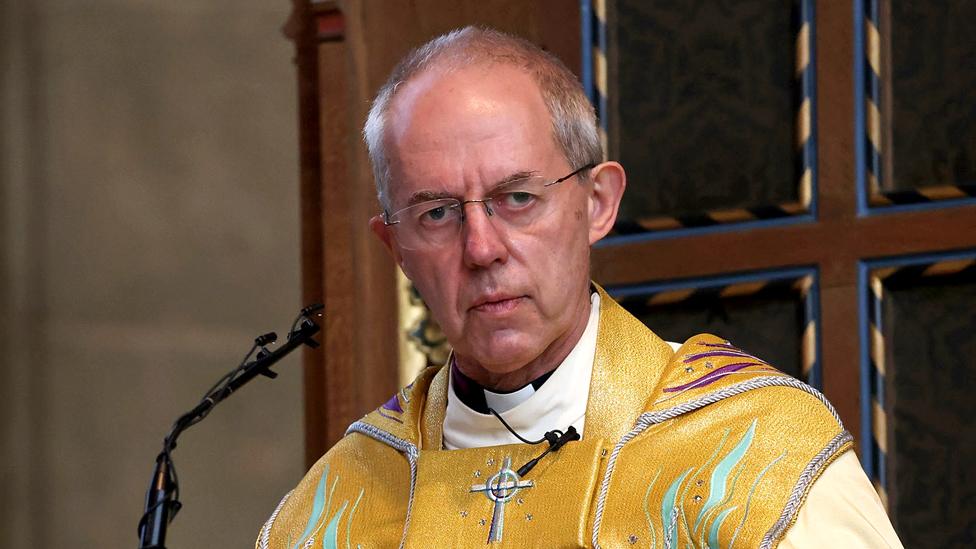Church of England backs plans to bless gay couples
- Published
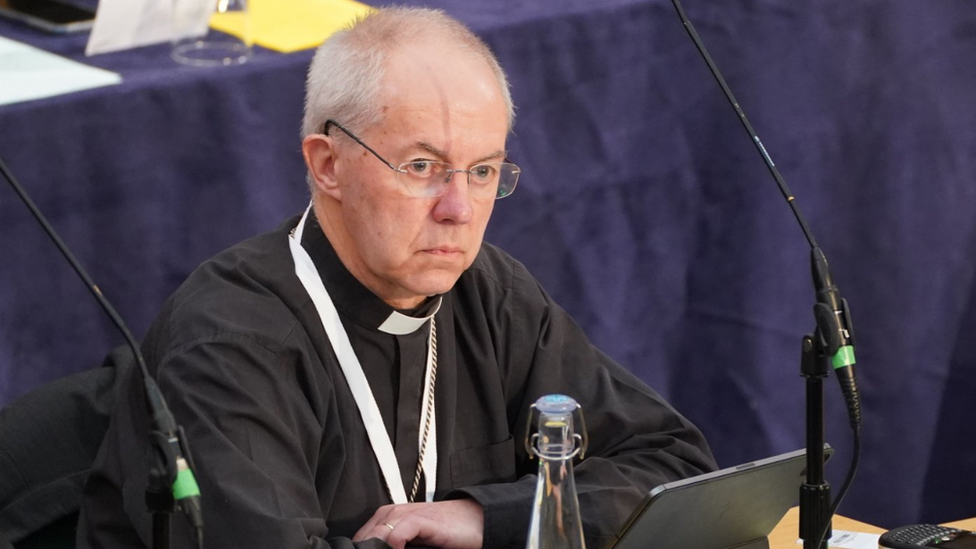
The Archbishop of Canterbury, the Most Reverend Justin Welby, warned the Church's parliament not to give in to the "fear of a slippery slope" when debating plans to bless same-sex couples
The Church of England has backed proposals to allow prayers of blessing for same sex couples.
Its position on gay marriage will not change and same-sex couples will still be unable to marry in church.
The plans, set out by bishops last month, have been criticised from those who think they go too far and those who think they don't go far enough.
But the motion was passed in all three of synod's 'houses'.
Priests will have the option to bless gay couples but can opt out. The first blessings could be in the summer.
'Deeply saddened'
The Archbishop of York, the Most Revd Stephen Cottrell, said the Church was in a "in a better place today" as a result of the vote.
"I'm really pleased that we now will be able to bless same-sex couples who are faithfully living in a civil marriage or a civil partnership, in church," he told BBC Radio 4's PM programme. "But at the same time, I'm glad that we believe there is a way forward to hold together in the Church those who in good conscience will not be able to offer such services. It won't be easy but we are committed to it."
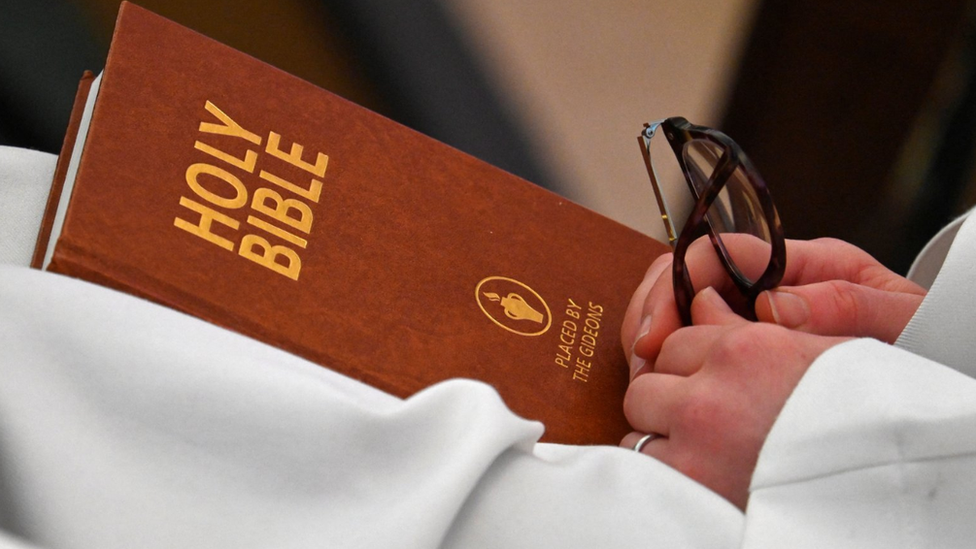
The move will not change the Church's teaching marriage is between a man and woman only
In a joint statement with the Archbishop of Canterbury, they acknowledged "deep differences" remained.
The Church of England Evangelical Council said it was "deeply saddened and profoundly grieved" by the move.
"The Church of England now appears set on a course of action that rejects our historic and biblical understanding of sex and marriage," a spokesman said.
"This seems to us to be a lose-lose position for everyone in the Church of England. Those who wanted more change will continue to ask and push for greater change. Those of us who have been trying to uphold the historic and biblical understanding of marriage and singleness say change has gone too far."
God's blessing
In more than eight hours of debate there were 18 votes on attempted amendments, both from conservatives and liberals.
An amendment to force a vote on changing the Church's teaching and allowing gay couples to marry in Church was rejected.
The only amendment that passed was from conservatives, reinforcing that the new prayers of blessing "should not be contrary to or indicative of a departure from the doctrine of the Church of England" which does not allow same-sex marriage.
Immediately before the vote a minute of silence was observed followed by a prayer said by the Archbishop of Canterbury.
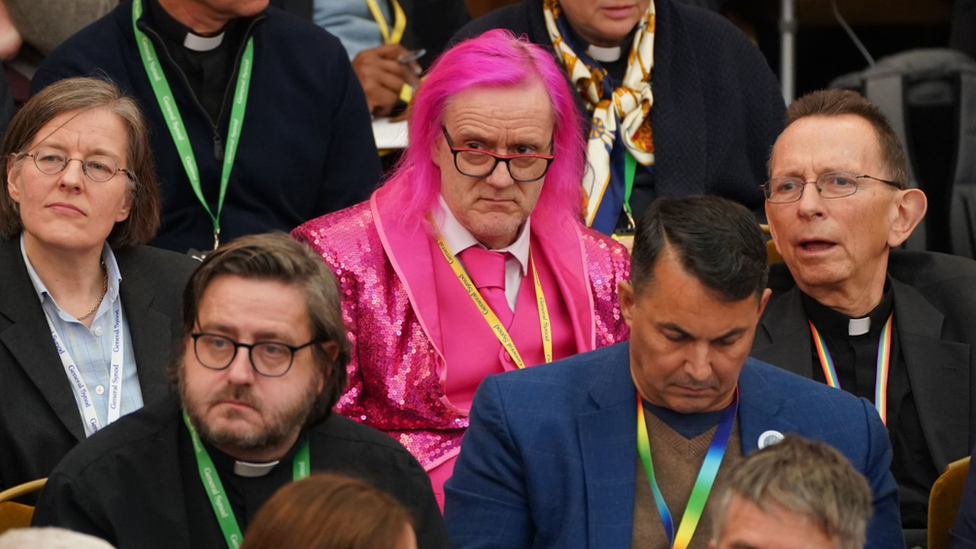
Members of the Church of England's General Synod gathered at Church House, in central London
Approval of the motion allows same-sex couples to go to Anglican churches after a legal marriage ceremony for services including prayers of dedication, thanksgiving and God's blessing.
The motion had been brought by the Bishop of London, Dame Sarah Mullally, and was the result of six years of work on questions of identity, sexuality, relationships and marriage known as Living In Love And Faith.
BBC religion editor Aleem Maqbool said: "It may sound contradictory to vote to bless same-sex marriages, but still consider them as unions that defy Church of England doctrine but that after five years of consultation is the formula that's been settled on".
He said Church leaders were celebrating the move as "a watershed moment and a move forward towards acceptance of LGBTQ unions, but in a way that holds the institution together".
This is not the type of marriage equality that, for example, the Episcopal Church in Scotland long approved - for now, gay couples will still not be able to have a Church of England marriage.
The final motion was passed across the synod's three 'houses'. The House of Bishops voted 36 in favour, four against with two abstentions. The House of Clergy voted 111 in favour, 85 against and 3 abstentions. The House of Laity voted 103 in favour, 92 against, and 5 abstentions.
The bishops will now finalise the wording of the new prayers and also issue new guidance on whether gay clergy must remain celibate before the synod meets again in July.
Related topics
- Published18 January 2023
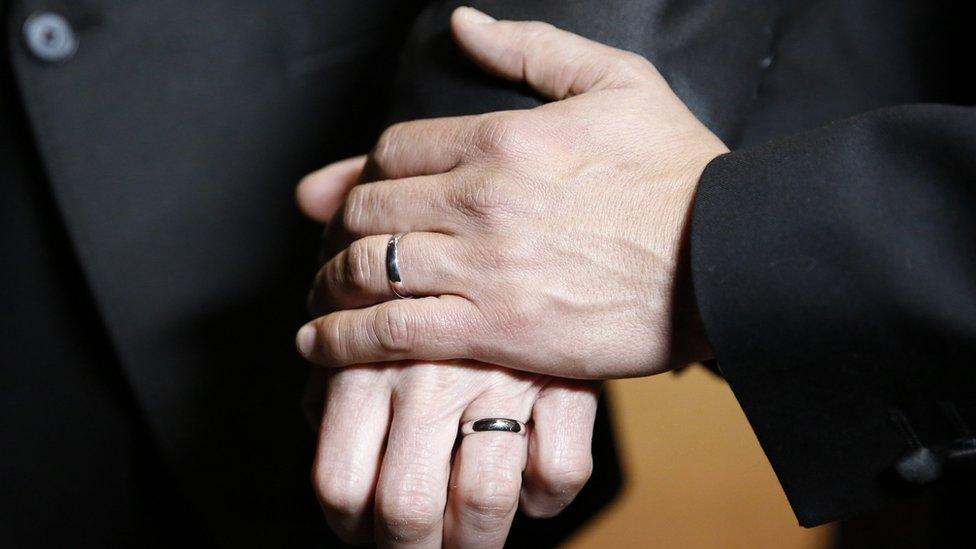
- Published8 February 2023
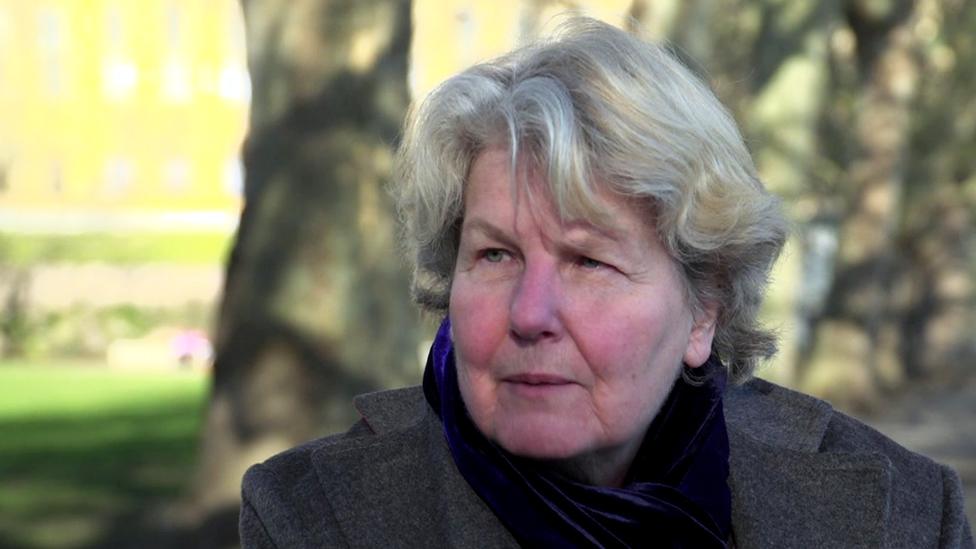
- Published20 January 2023
